SEO, Social Media, Web Development
Should You Target Zero-Volume Keywords? It Depends
- By Brett Belau
21 Oct
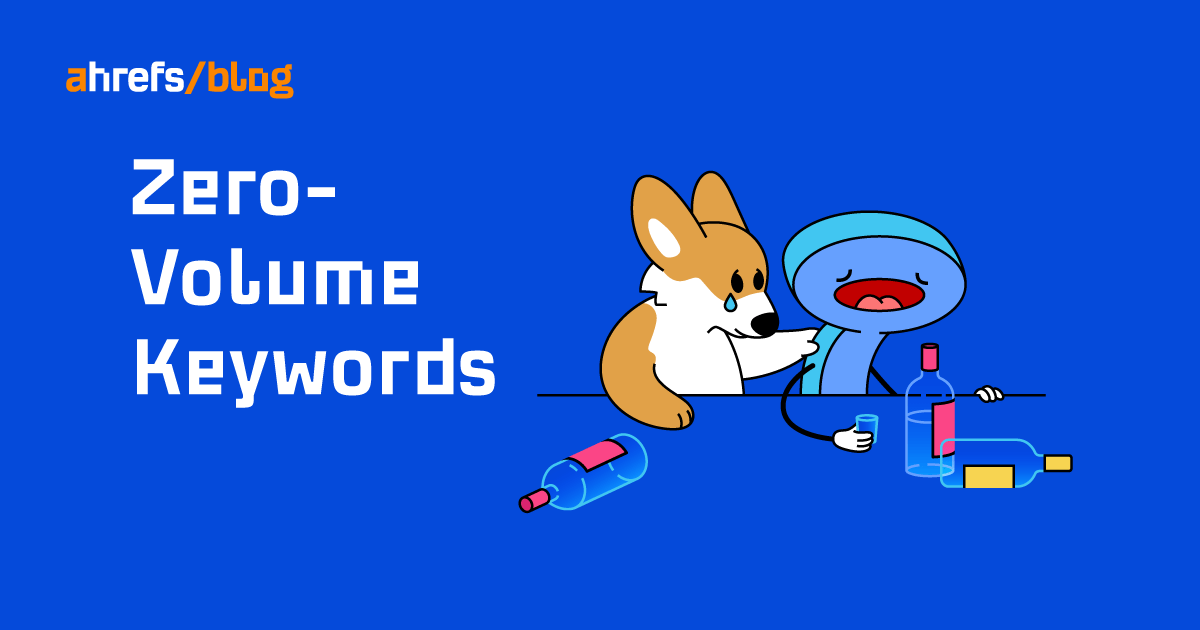
If your keyword tool says nobody’s searching for a keyword, should you bother targeting it?
Although the obvious answer is “no,” there’s been a lot of chatter about the benefits of targeting zero-volume keywords among SEOs.
So what gives? Is there any logical reason to do this, or is it just another overhyped SEO trend?
In this post, we’ll discuss four perceived benefits of targeting low-volume keywords and why they’re not always so black and white.
It’s no secret that search volumes in keyword research tools aren’t perfect.
For example, the keyword “hreflang tag seo” gets an estimated 10 monthly searches in the U.S., according to Ahrefs’ Keywords Explorer.
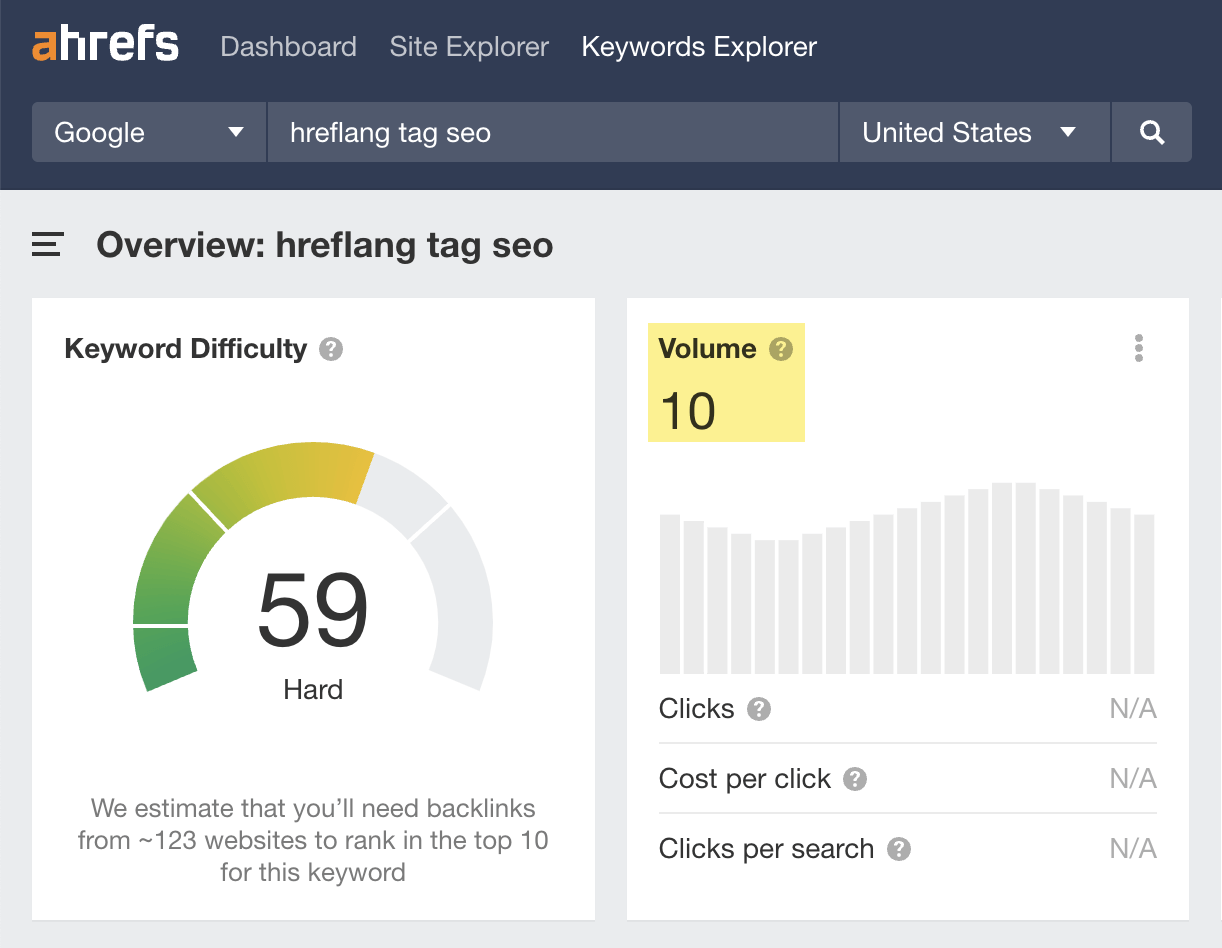
Sidenote.
Semrush gave the same search volume estimate.
But as we rank in the top five for this keyword, we can get a more accurate estimation by looking at our impressions in Google Search Console (GSC). If we do that for the last 28 days in the U.S., we see 20 impressions.
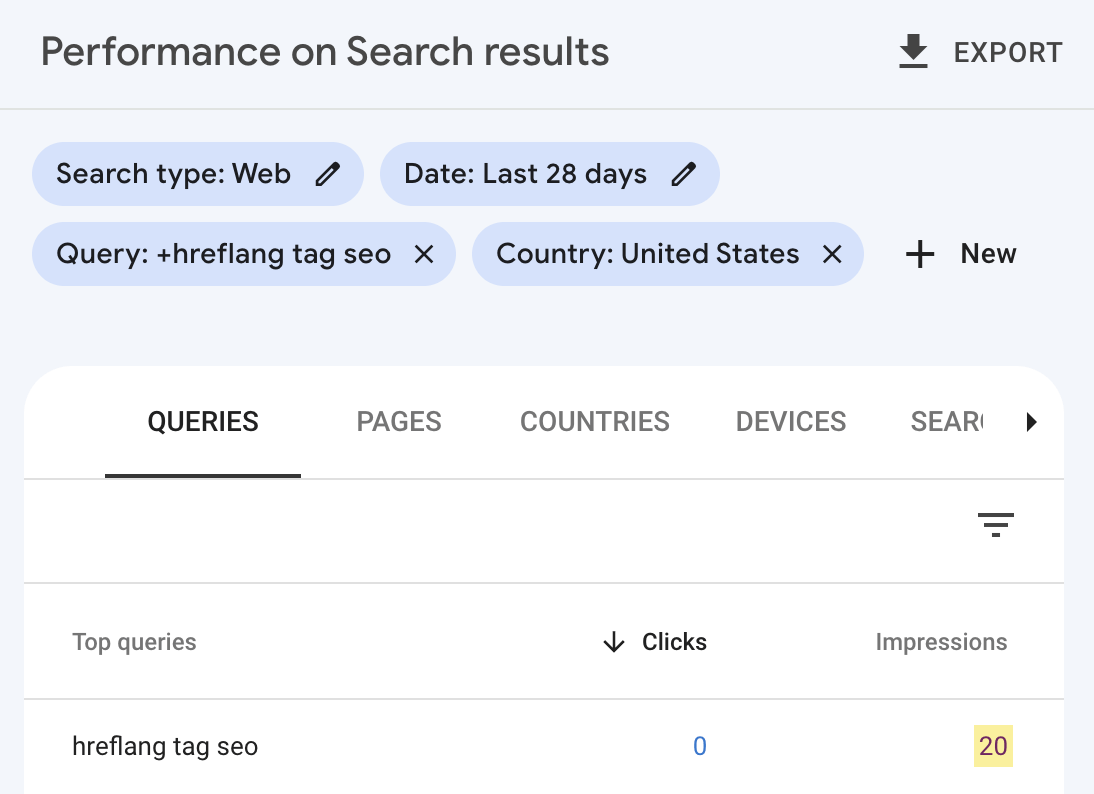
Based on this data, we can see 2X more searches for this keyword during the period than what Ahrefs or Semrush estimated. This seems to back up the idea that zero-volume keywords probably get some searches and are worth targeting.
Is it really this simple?
Not quite. Most zero-volume keywords get some searches. But expecting tons of traffic from one is a bit like expecting rain when the forecast says sunny skies. It can happen, but it probably won’t.
That said, I think most advocates of zero-volume keywords are aware of this fact. They simply don’t care, as they don’t need a 100% hit rate. They just need a percentage of those they target to outperform estimates.
In theory, that makes sense. But how decent is the hit rate likely to be?
To help find out, I ran a (very) small experiment.
- I found all “top five” keyword rankings for the Ahrefs Blog that had an estimated monthly search volume of 10 or lower in the U.S. I used the Organic keywords report in Ahrefs’ Site Explorer to do this.
- I compared those search volume estimates to impressions data in Google Search Console for the last 28 days in the U.S.
The result? Most of the keywords drove the same or fewer impressions than their estimated search volumes in Ahrefs. Even worse, less than 1% of them drove more than 100 impressions.
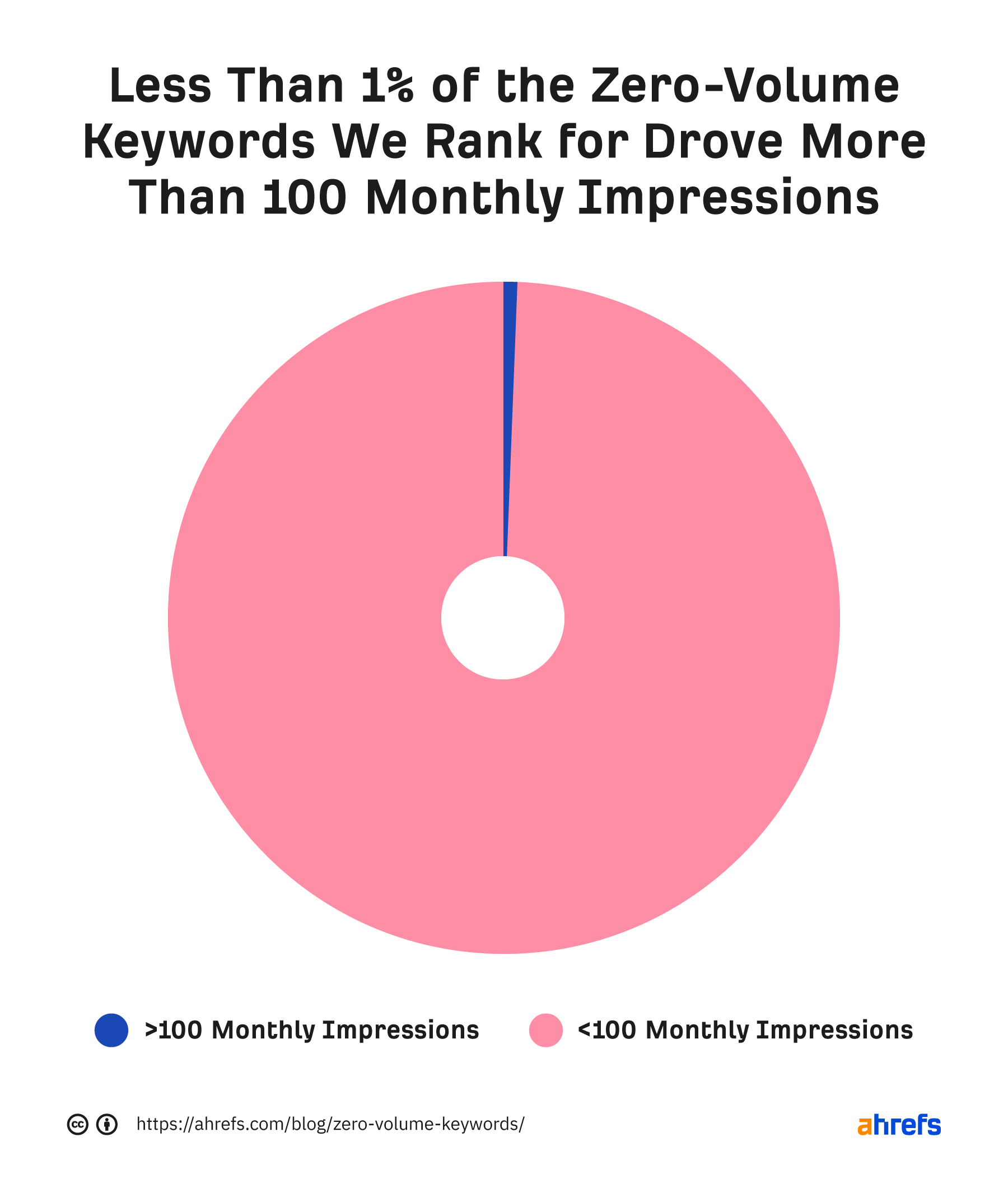
This means the chance of a low- or zero-volume keyword getting significantly more searches than estimated is extremely low.
In fact, on average, each keyword drove 11.3 impressions.
That’s a super interesting number because it’s pretty much dead-on the average monthly search volumes of these keywords. In other words, the data seems to indicate that, on average, low- and zero-volume keywords get very close to the number of monthly searches Ahrefs predicts.
disclaimer
These findings are based on quite a small sample size, so take them with a grain of salt. They may not be representative of every industry or group of topics.
Given this revelation, you may ask yourself, “Why do I keep seeing claims of zero-volume keywords driving lots of traffic?”
From what I’ve seen, it’s almost always a result of people conflating traffic from a single keyword with a page’s overall traffic.
Here’s just one example I saw in this excellent post by Tory Gray:
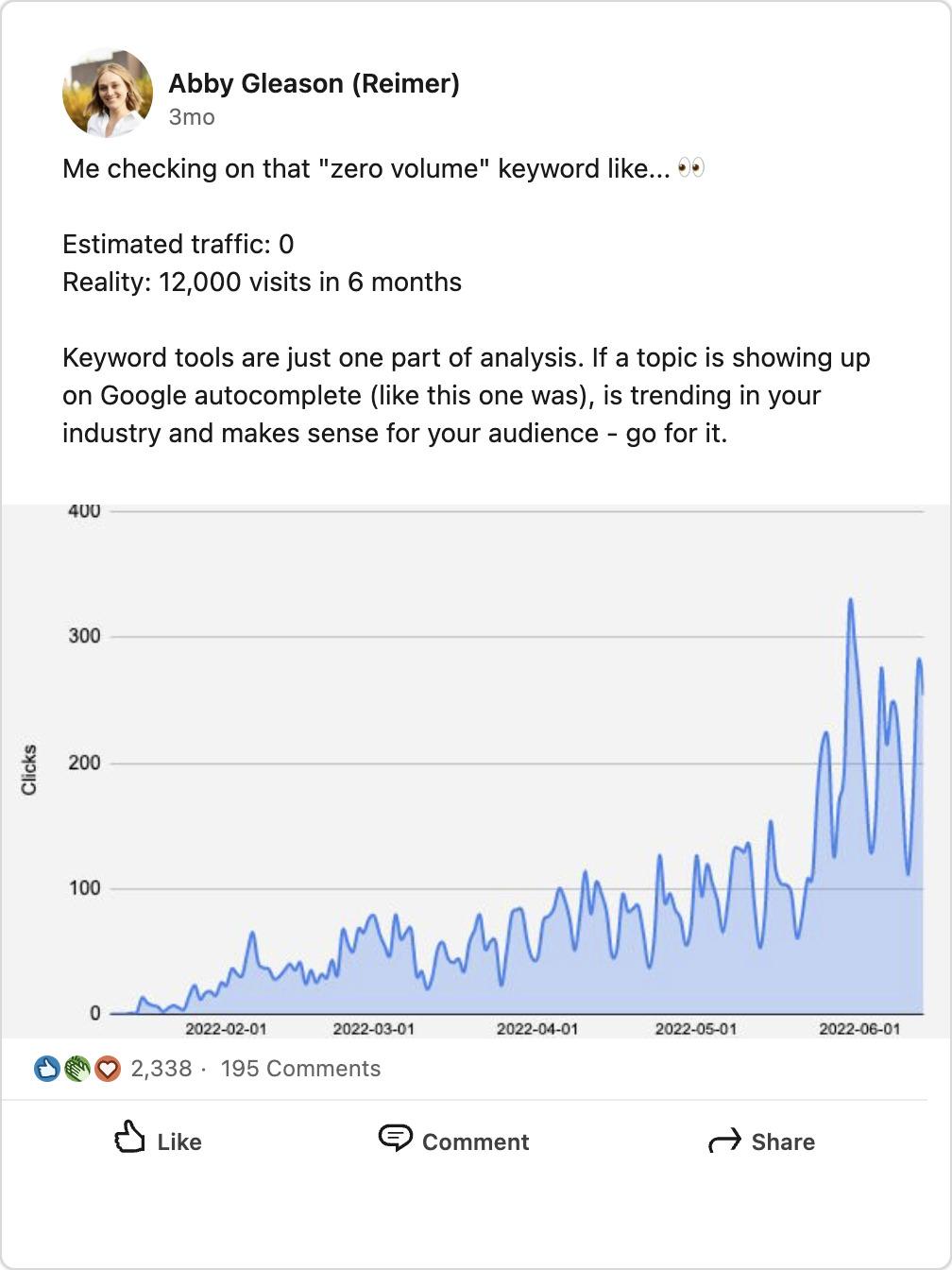
I wouldn’t like to say for definite, but my guess is that the zero-volume keyword this person is referring to is just an unpopular way of searching for something popular.
For example, Ahrefs estimates that the keyword “submit domain to search engines” gets 10 monthly searches in the U.S. Yet our search engine submission guide gets an estimated 3.8K monthly search visits.
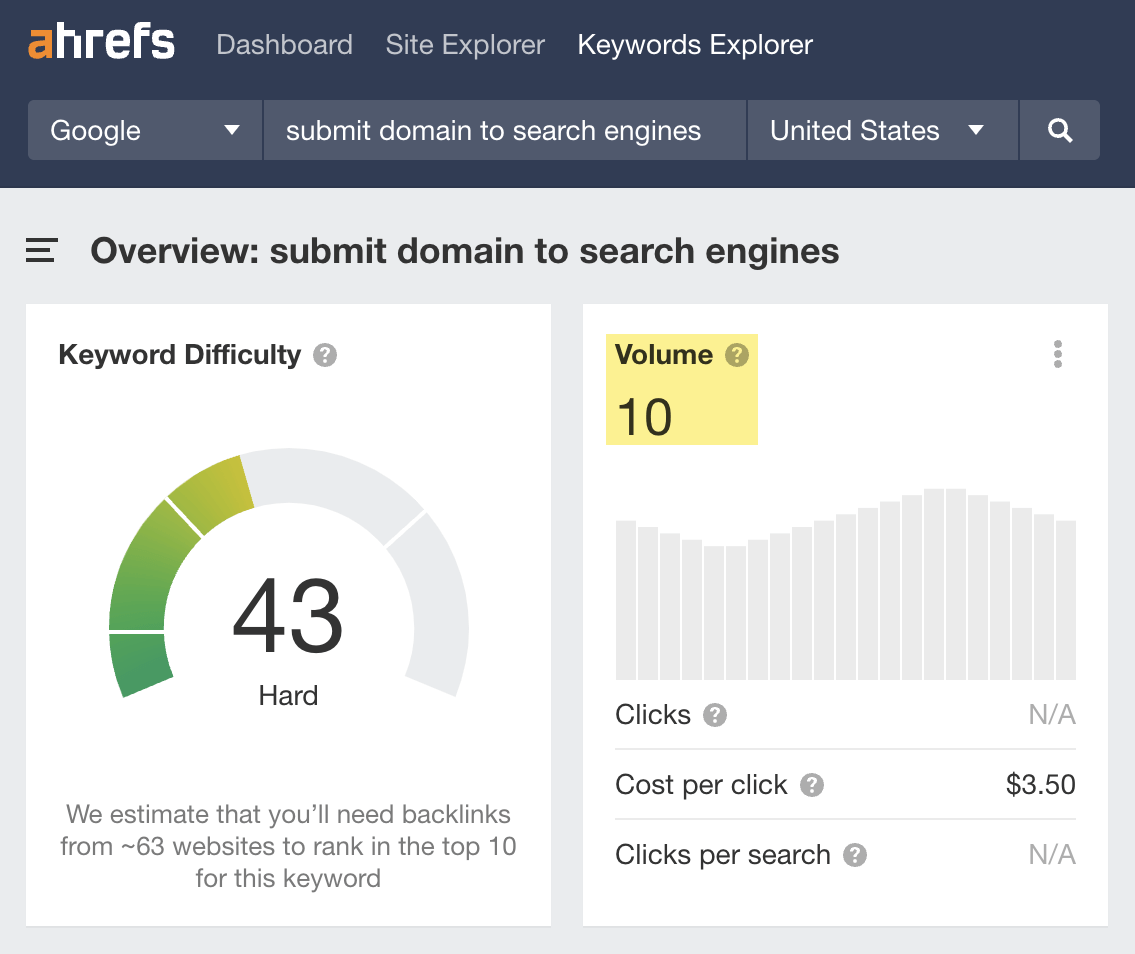
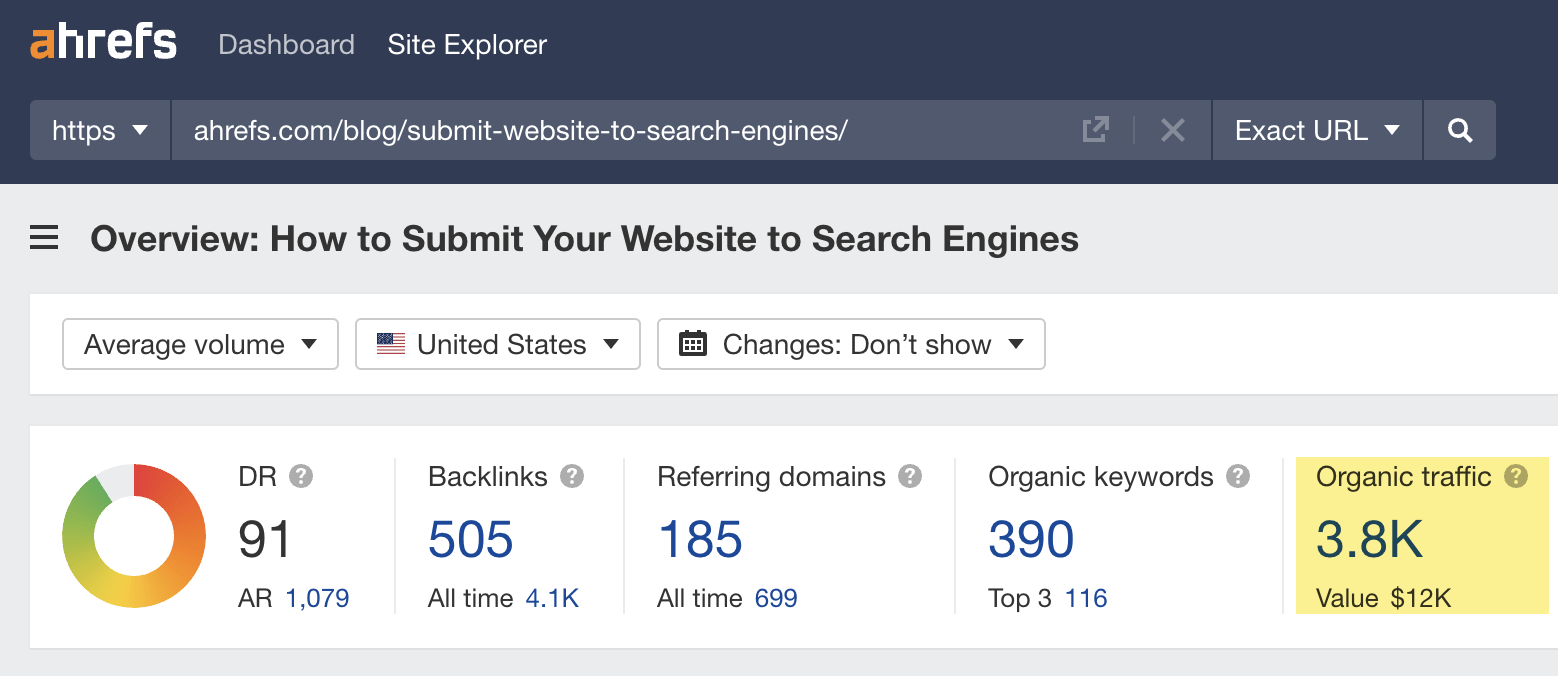
This happens because “submit domain to search engines” is an unpopular way of searching for a popular topic. It’s just that everyone types slightly different things into Google, so individual search volumes are low.
Our page gets lots of search traffic because it ranks for hundreds of long-tail keywords that all mean pretty much the same thing.
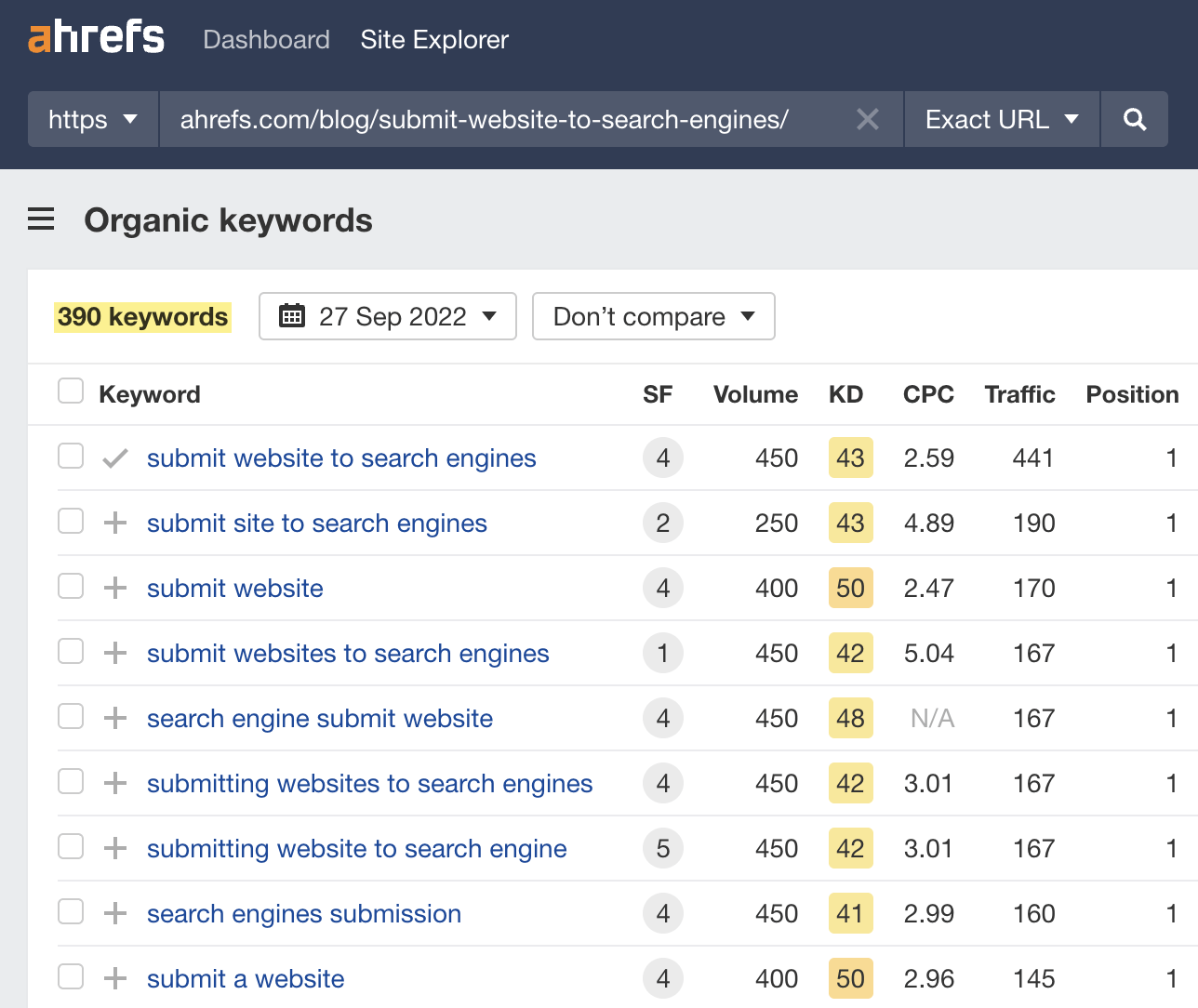
key takeaway
Most low- and zero-volume keywords get roughly the same number of monthly searches as estimated. There are just some outliers. Many claims of pages targeting zero-volume keywords getting lots of traffic likely happen because the keyword is a long-tail variation of a popular topic.
Given that most SEOs target high-volume keywords, it’s pretty obvious that low- or zero-volume keywords will be less competitive on the whole.
For example, according to Ahrefs’ Keywords Explorer, the keyword “link building” gets an estimated 14K monthly searches in the U.S. So it’s no surprise that it’s also extremely competitive, with a Keyword Difficulty (KD) score of 87.
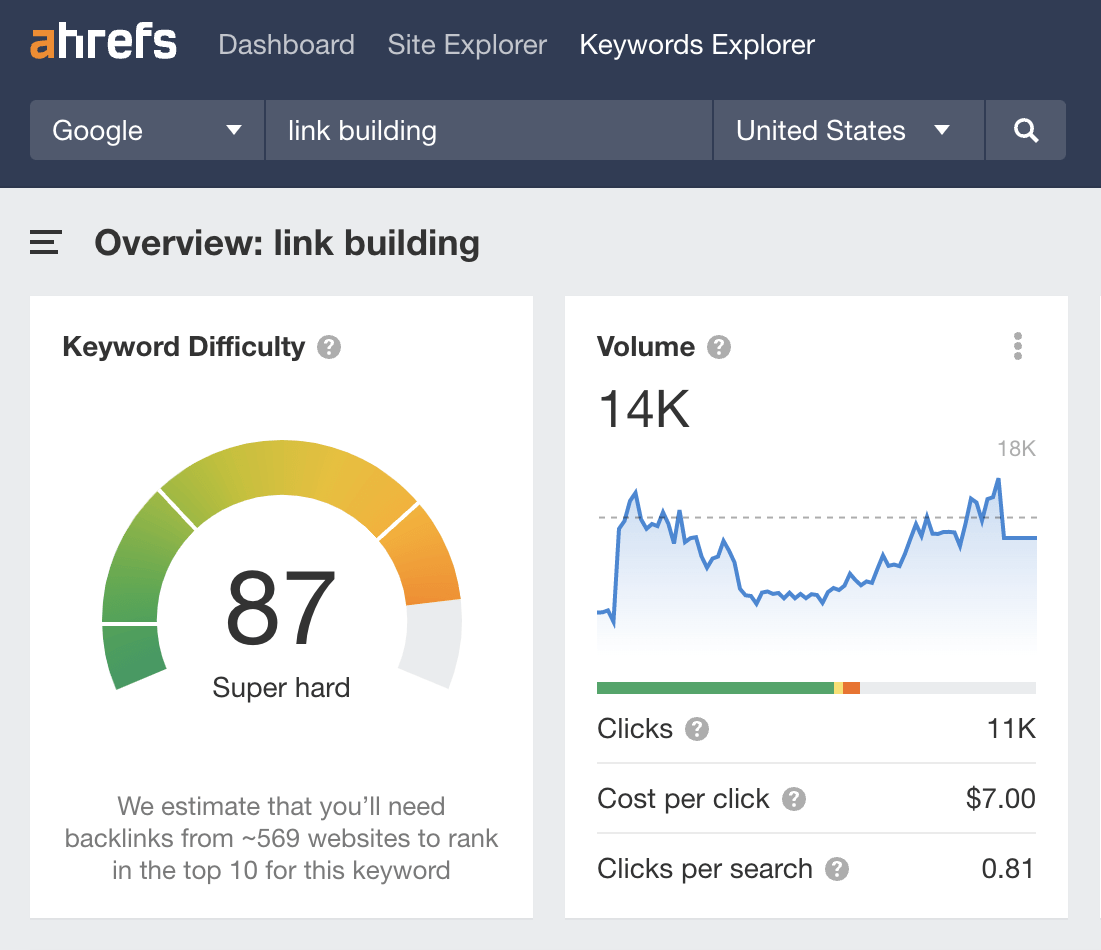
Compare this to a zero-volume keyword about a similar topic, “link building for roofers,” and it’s a completely different story. Its KD score is 0.
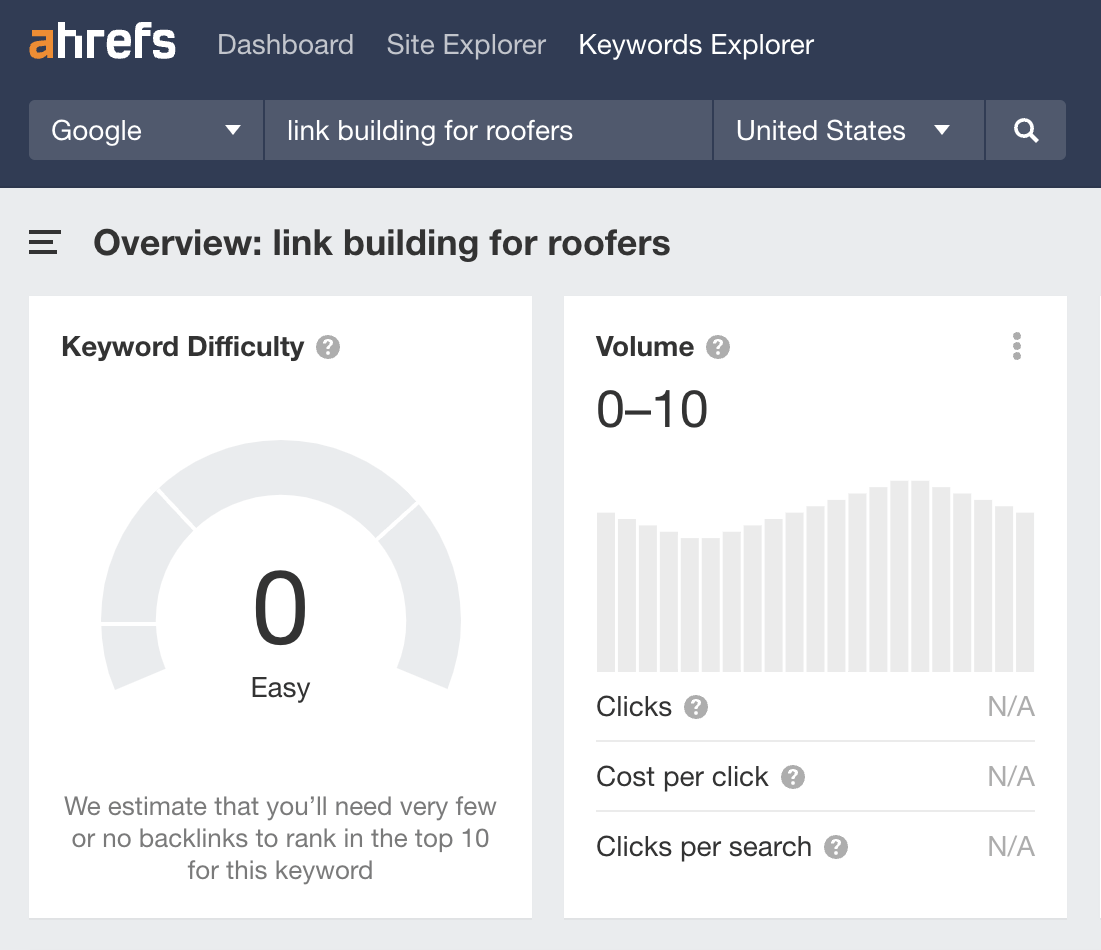
Given this observation, it seems clear that low- and zero-volume keywords are easier to rank for.
Is it really this simple?
Not quite. Although many low- or zero-volume keywords are indeed much easier to rank for, many of them are unpopular ways of searching for something popular.
The keyword we discussed before, “submit domain to search engines,” is a perfect example of this. It only gets an estimated 10 monthly searches, but it’s no easier to rank for when compared to a more popular way of searching for the same thing.

This happens because Google understands that both of these queries mean the same thing, so it ranks an almost identical set of search results for both queries.
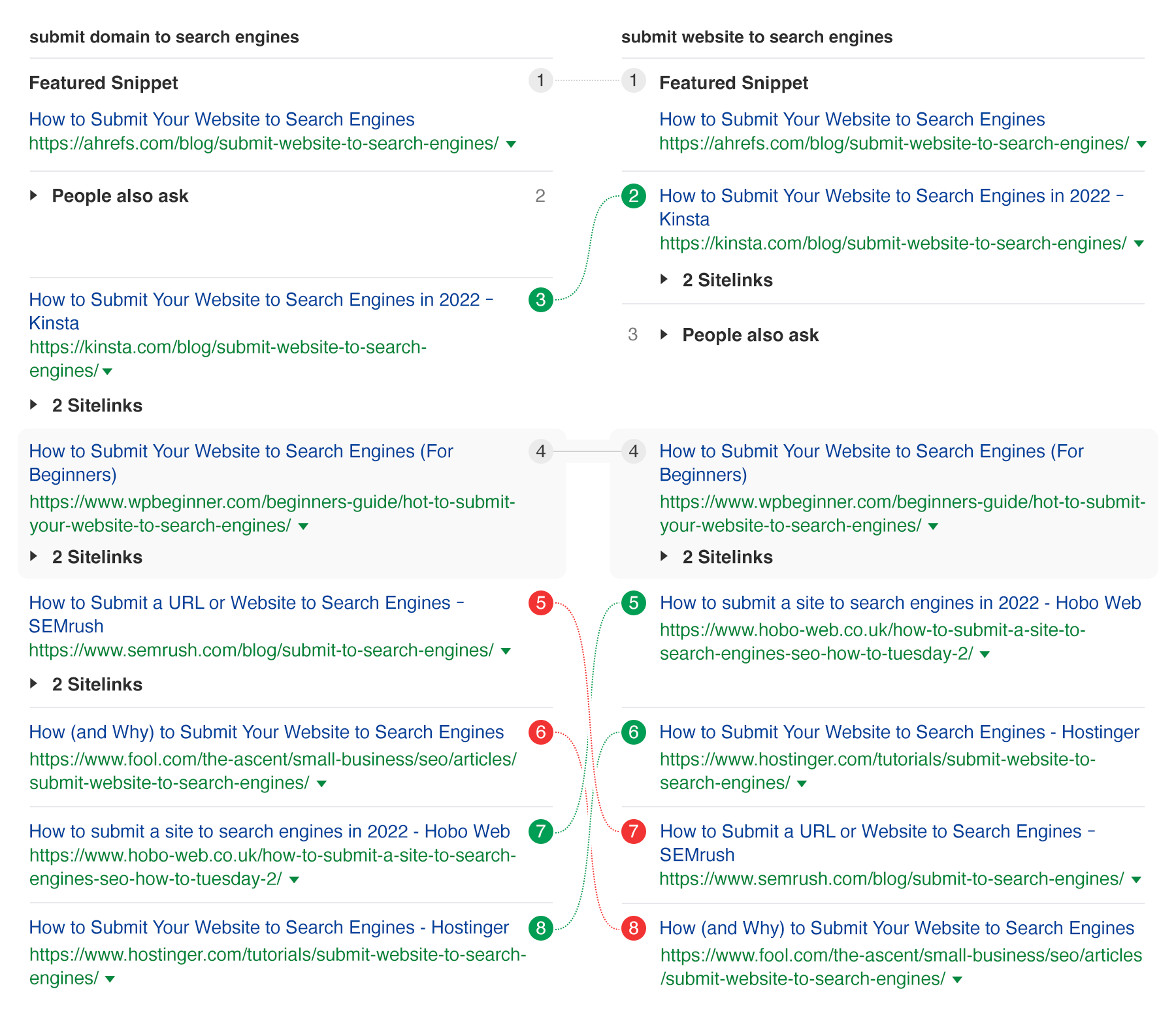
In Ahrefs, there are a couple of metrics you can use to help figure out whether a zero-volume keyword is its own topic or a long-tail variation of a popular keyword.
- Keyword Difficulty (KD) – Keywords with high KD scores have top-ranking pages with many backlinks. Given that this isn’t usually the case for unpopular topics, a zero-volume keyword with a low KD score likely represents its own topic.
- Traffic Potential (TP) score – Traffic Potential is the estimated monthly search traffic to the current top-ranking page for a keyword. If this is much higher than a keyword’s estimated search volume, it shows there are other more popular ways of searching for the same thing.
Here’s an example of Traffic Potential in action:
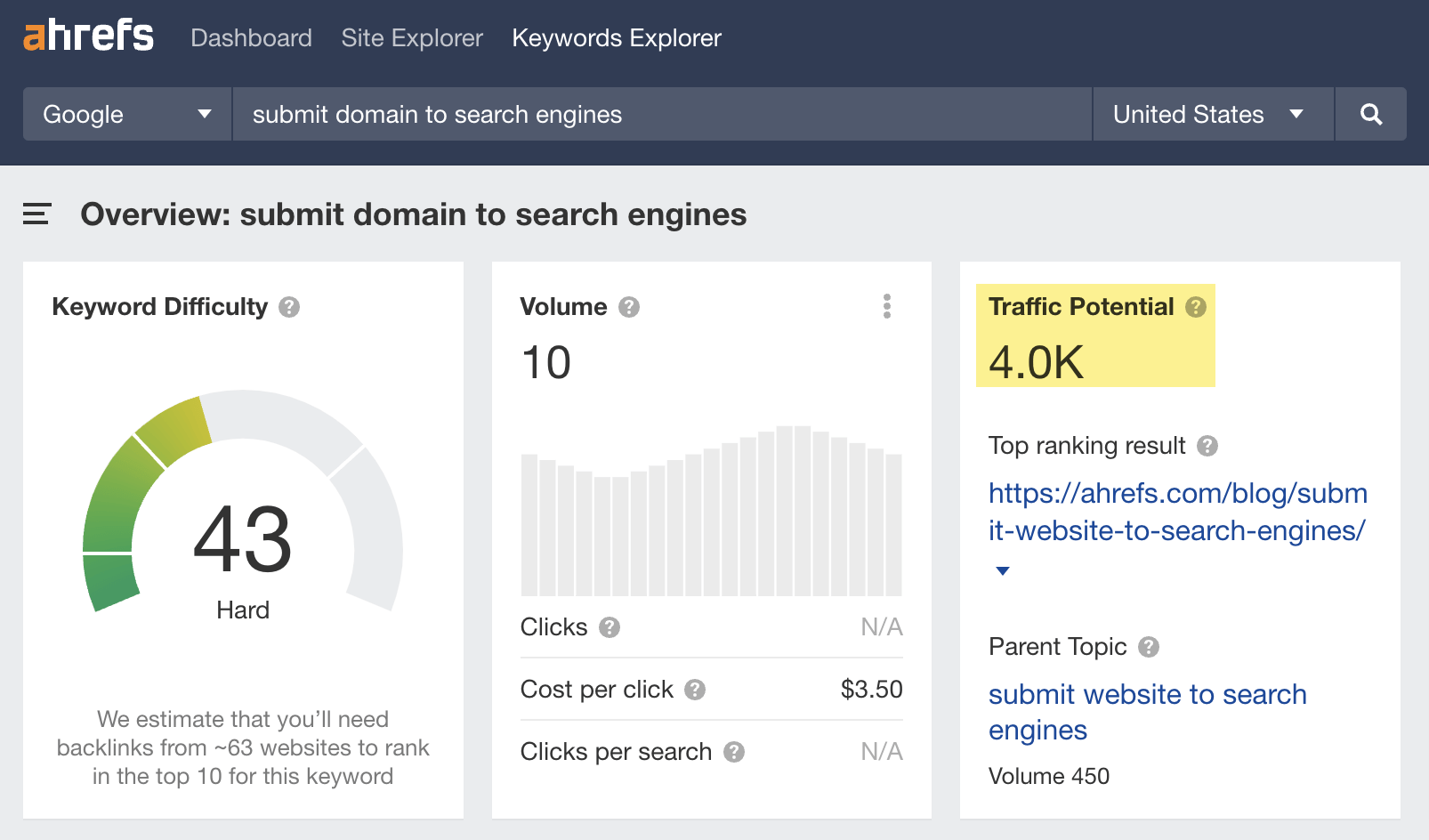
key takeaway
Not all zero-volume keywords are easy to rank for. If they’re less popular ways of searching for something popular, they’re probably no easier to rank for than their “head” terms.
Most high-volume keywords are quite broad, which makes it hard to create content around them to please all searchers.
For example, take the keyword “ecommerce SEO.” Judging by the SERP, the broad intent behind this keyword seems obvious: Searchers want a guide that teaches them how to get more traffic to their stores.
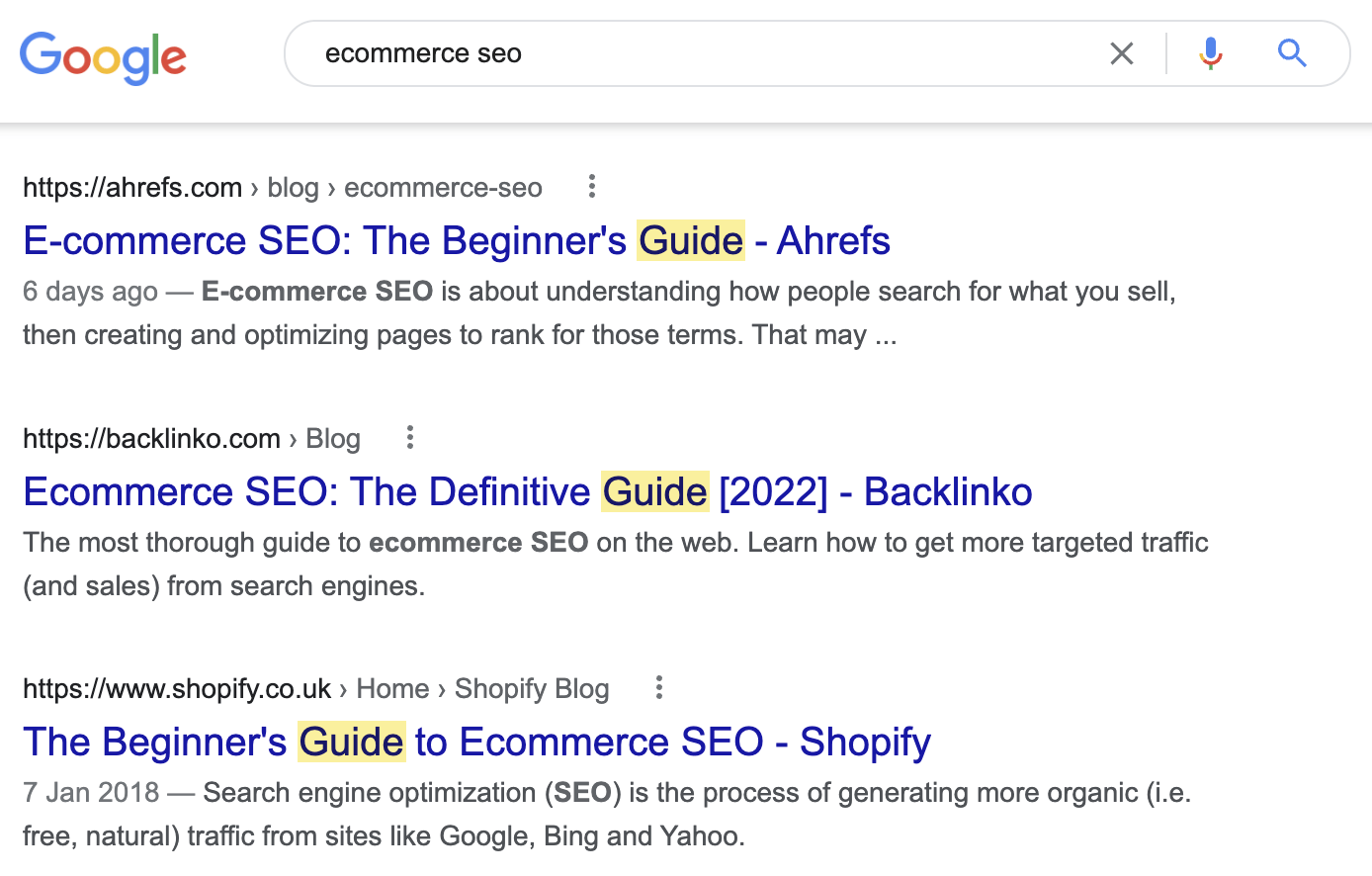
But unfortunately, it’s hard to give SEO advice that applies to all searchers because the query doesn’t tell us enough about their situation. There are too many variables, such as:
- Are they setting up their store, or is it already live?
- Are they selling branded or non-branded products?
- Are they using Shopify, WooCommerce, or something else?
Compare this to a zero-volume keyword about a similar topic like “how to structure an ecommerce site for SEO.” Here, the searcher is trying to achieve a much more specific goal, which makes this (and other low-volume keywords) easier to answer with content.
Is it really this simple?
Kind of. Assuming the zero-volume keyword represents its own topic and isn’t just a less popular way of searching for something popular, I’d say it’s almost always quite specific and easier to create content around.
That said, specificity isn’t exactly a unique quality of low- or zero-volume keywords. There are plenty of high-volume keywords with very specific and obvious intents too; they’re just less common.
For example, take the keyword “submit website to search engines.” Despite a monthly search volume of 450, it’s pretty obvious from the SERP and the query itself that searchers want to learn how to submit their sites to search engines.
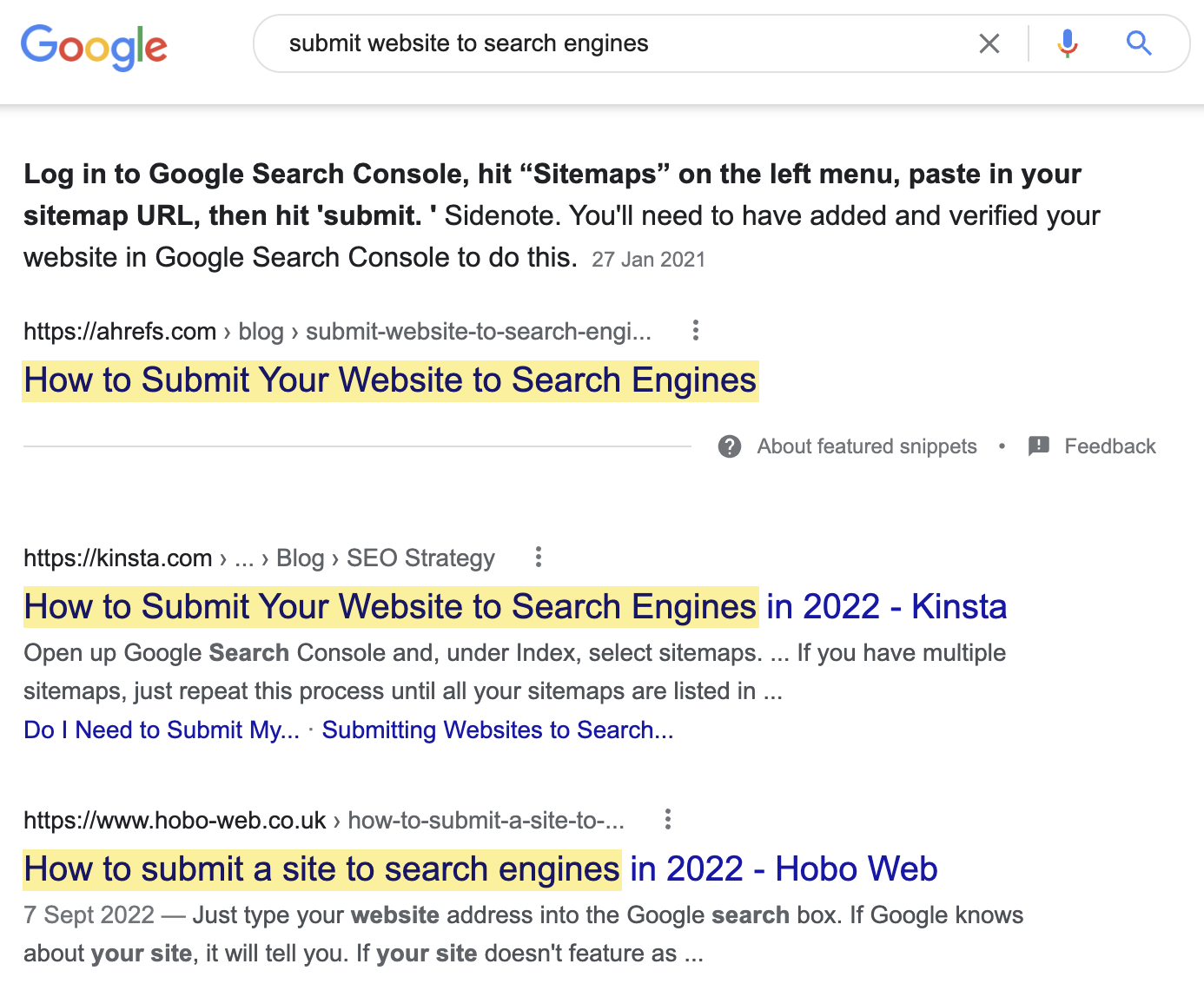
Given that the process of submitting to search engines is the same for every website, it’s easy to create content that will please almost all searchers.
key takeaway
Most zero-volume keywords that represent their own topics are quite specific and easy to create content around. But that’s also true of some higher-volume keywords.
Not only is it easier to create content for more specific searches, but they also often convert better.
For example, take a keyword like “broken link building.” Even though this isn’t a particularly high-volume keyword, it’s clear from the SERP that intent is informational. Most searchers want to learn how to use this technique, not buy broken link building services.
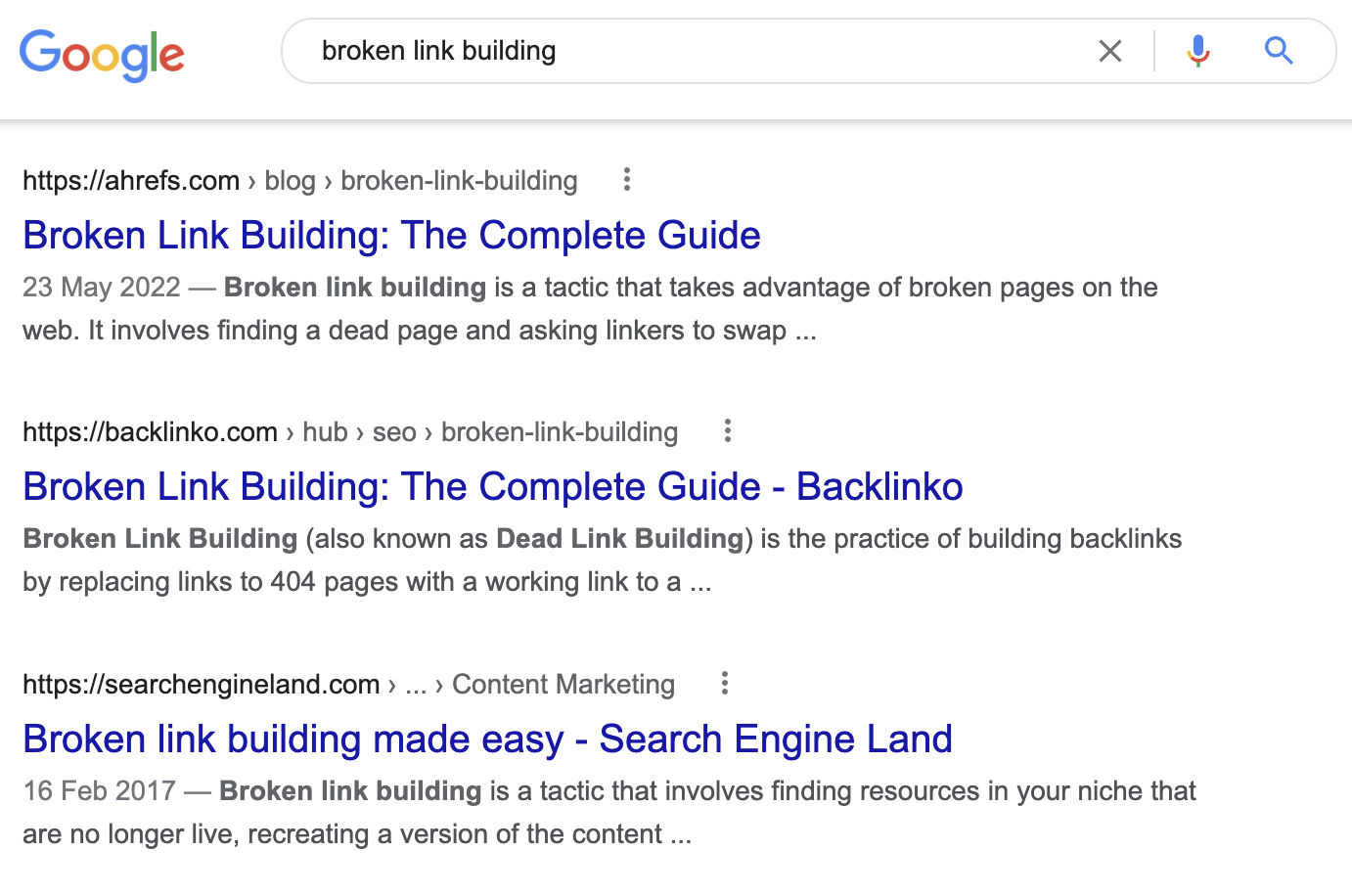
Compare this to a zero-volume keyword about the same topic like “buy broken link building services,” and it’s a different story. Searchers are clearly looking to buy, not learn.
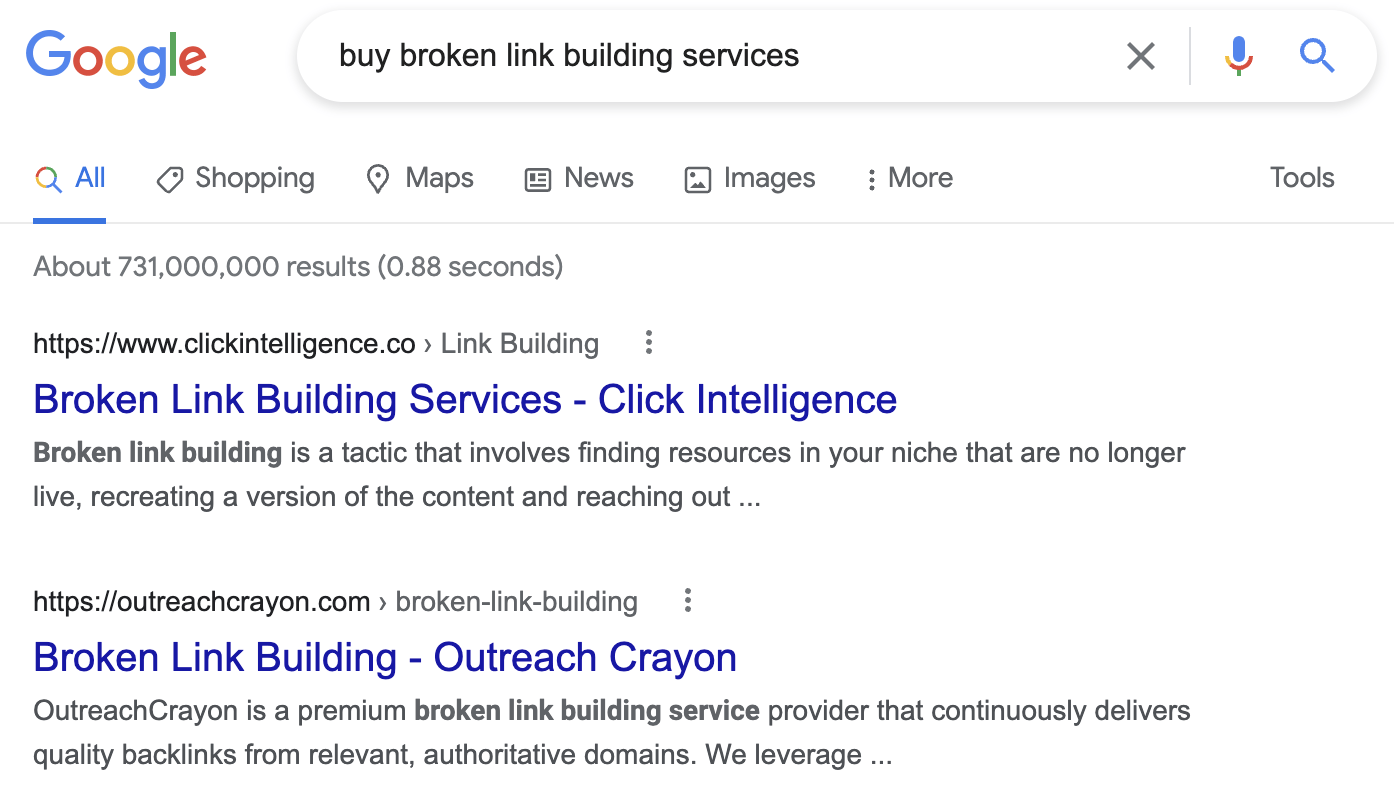
Is it really this simple?
Not quite. Although low- and zero-volume keywords are perhaps more likely to be BoFu, it’s not a given. Plenty of zero-volume keywords are far from lucrative.
For example, take the zero-volume keyword “how to copy a picture on facebook without tagging.” Even if actual search volume is way higher than estimated, you’re hardly going to drive conversions from this keyword.
key takeaway
Not all low- and zero-volume keywords convert well. It depends on the intent behind them.
Final thoughts
It doesn’t make much sense to hunt down and target “zero-volume keywords” when there are plenty with search volumes ripe for the taking.
However, there are a couple of times when targeting a zero-volume keyword may make sense:
- You come across a trending topic that you think has legs – Even if there’s no reported search volume yet, it’s often worth creating a page to get in first.
- You come across a lucrative topic with the potential to convert visitors – Even a few visits from these keywords can be worth $$$$, so why not create a page around it and see what happens?
Got questions? Disagree with me? Ping me on Twitter.
Source: ahrefs.com, originally published on 2022-10-21 01:00:00
Connect with B2 Web Studios
Get B2 news, tips and the latest trends on web, mobile and digital marketing
- Appleton/Green Bay (HQ): (920) 358-0305
- Las Vegas, NV (Satellite): (702) 659-7809
- Email Us: [email protected]

© Copyright 2002 – 2022 B2 Web Studios, a division of B2 Computing LLC. All rights reserved. All logos trademarks of their respective owners. Privacy Policy

![How to Successfully Use Social Media: A Small Business Guide for Beginners [Infographic]](https://b2webstudios.com/storage/2023/02/How-to-Successfully-Use-Social-Media-A-Small-Business-Guide-85x70.jpg)



![How to Successfully Use Social Media: A Small Business Guide for Beginners [Infographic]](https://b2webstudios.com/storage/2023/02/How-to-Successfully-Use-Social-Media-A-Small-Business-Guide-300x169.jpg)


Recent Comments